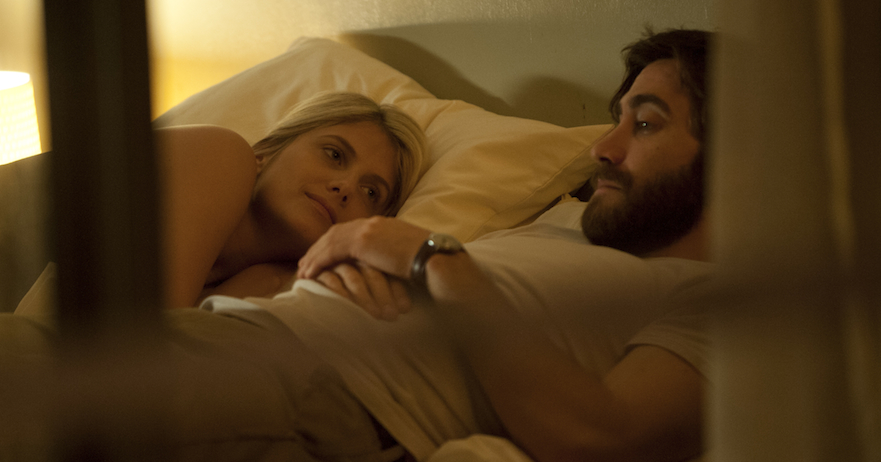Villeneuve, Cronenberg and the two Jakes
With ‘Enemy,’ a Quebec auteur doubles down on Jake Gyllenhaal in a diabolical portrait of Toronto
Share

The release of Enemy, Quebec director Denis Villeneuve’s English-Canadian debut, comes just days after its triumph at the Canadian Screen Awards, where it won five of its 10 nominations, including best director. The film premiered at TIFF last fall, along with Villeneuve’s first studio picture, Prisoners, a tough abduction thriller starring Jake Gyllenhaal that generated a wave of early Oscar buzz then proved too grim for the Academy, and ended up with just one nomination (for Roger Deakins’ cinematography).
Gyllenhaal also stars in Enemy—twice. In fact, he co-stars with himself in a mind-bending intrigue about a man who meets his double. The movie is set specifically in Toronto, looking more cold and austere than that it has ever looked on screen, even through David Cronenberg’s lens. Villeneuve, who apologized for “shooting in Cronenberg’s backyard” at the Canadian Screen Awards, seems to have made himself at quite at home. Toronto filmmakers are known to have a fetish for dark tales of twisted identity, and just when you thought English Canadian cinema could not get any stranger, Villeneuve ups the ante, like a provocateur breezing in from Montreal to reveal the bloodless underbelly of Hogtown. With Enemy, he’s composed a perverse existential puzzle that conforms to canon shaped by Cronenberg and Atom Egoyan as if to the manor born.
The movie is based on The Double, a 2002 novel by Nobel Prize-winning author José Saramago (and is produced by Niv Fichman, who also brought Saramago’s 2008 novel Blindness to the screen). In Enemy, a psychological thriller, a university lecturer named Adam is shocked to discover he has an exact double named Anthony, a minor actor with a secret life. Gyllenhaal plays both men, who are polar opposites. Adam is a shy, sensitive soul who lives in a barren low-rent Toronto high-rise and has distracted sex with a blond girlfriend (Mélanie Laurent). Anthony is a brash philanderer with a secret life who lives with a blond, very pregnant wife (Sarah Gadon). Their home is a luxurious suburban condo, one of those curvy showpieces in Mississauga.
With a grim palate that goes from cement-grey to smog-yellow, the camera dotes on a forbidding landscape of residential towers, office blocks and freeways. At one point, an aerial camera pans across the phalanx of condos that wall off Toronto’s waterfront, as if the city’s soul its trapped inside, under glass. Villeneuve has called the movie a “love letter to Toronto,” and if that’s the case, I can’t imagine how he’d express his dislike for it.
Enemy‘s drama of urban angst adds up to a diabolical essay about identity, anonymity, and the horror of not knowing the man who shares your bed. Its glacial yet compelling narrative, which stops cold with a baffling twist at the end, is not what you’d call user-friendly. This is an art-house trip to the dark side that does not go out of its way to entertain. But even though this seems like a minor diversion for Villeneuve, the power of the director who made Polytechnique and the Oscar-nominated Incendies is evident. Between Gyllenhaal’s two characters and their two solitudes, Villeneuve creates some delicious tension, laced with humour, and a sense of latent menace that draws us into a web with no exit.
The narrative takes some unlikely leaps. The arachnophobic should be warned that a spider is involved. Cronenberg, of course, made a film called Spider, which Villeneuve insists is not an influence. Not that he doesn’t worship Cronenberg. But he makes a distinction between being a “fan” deeply impacted by his work, rather than a filmmaker who has fallen under his influence. And just because Gyllenhaal navigates between his two characters with a slippery dexterity reminiscent of Jeremy Irons in Dead Ringers—a film that Villeneuve says he’s “still traumatized by”—this appears to be just a happy accident.
When Villeneuve accepted his CSA trophy for best director, however, he did make a point of thanking his parents for “giving me a subconscious.”
Clearly, someone had an influence.